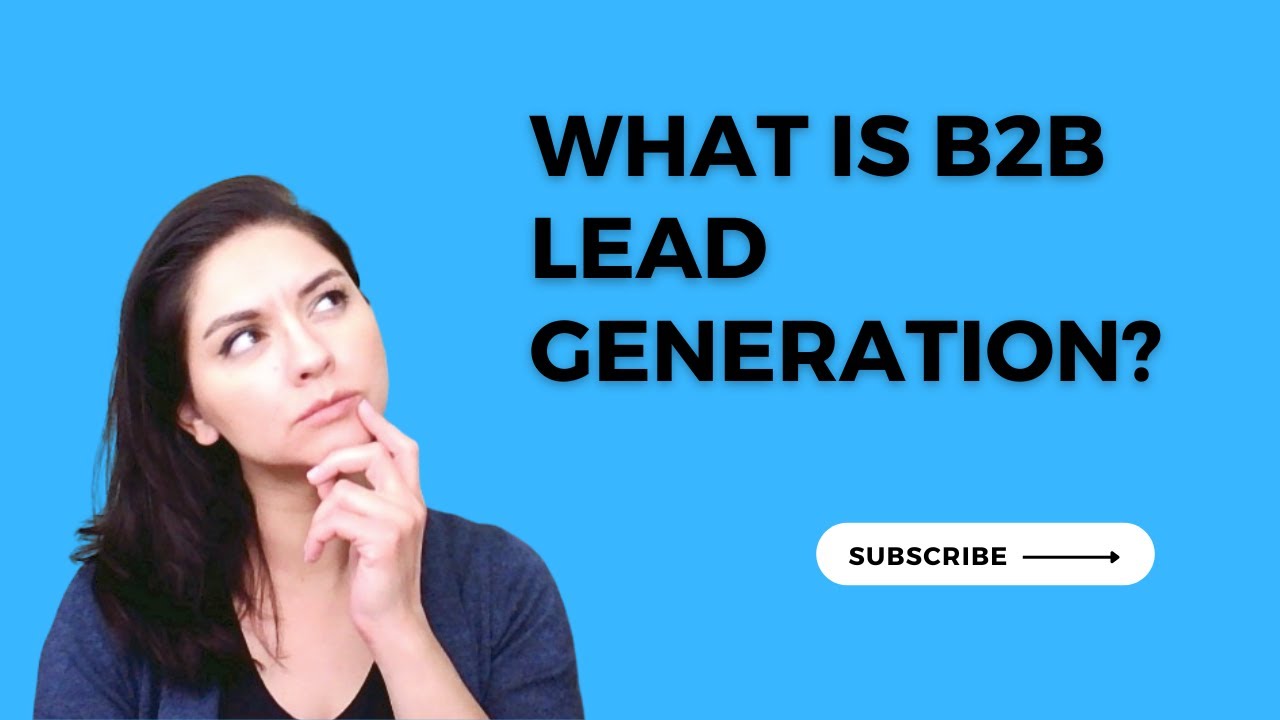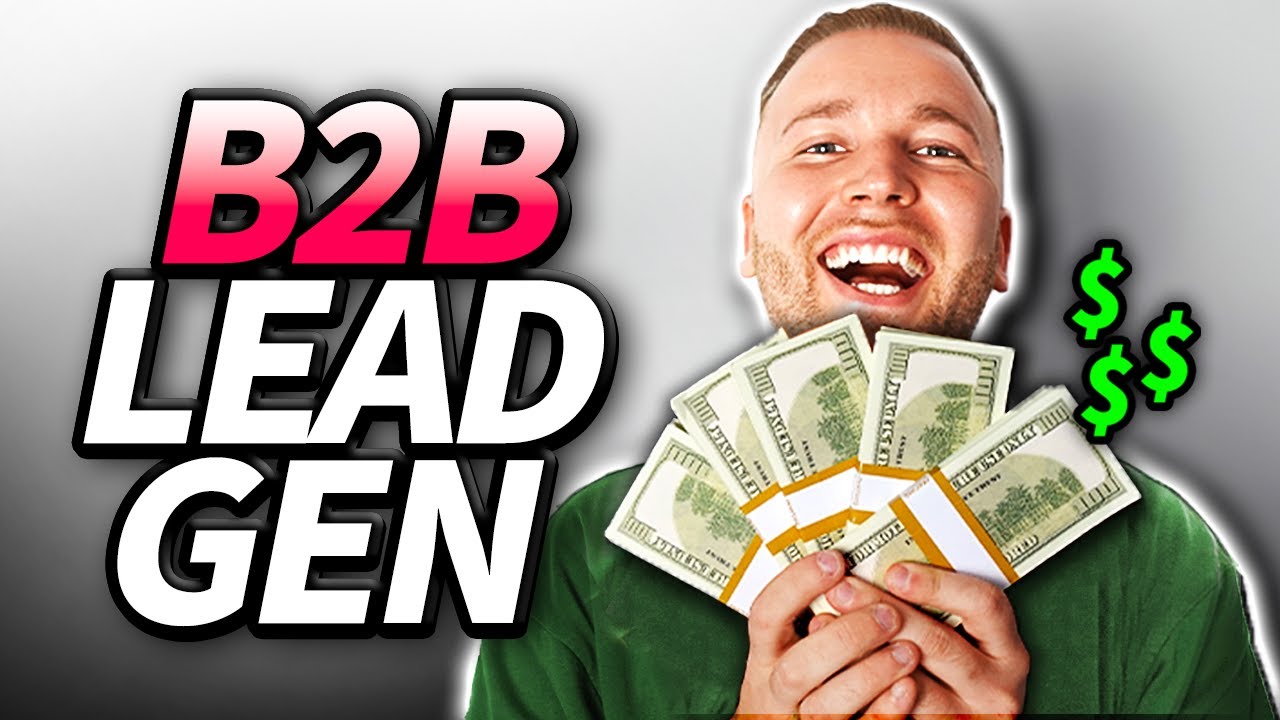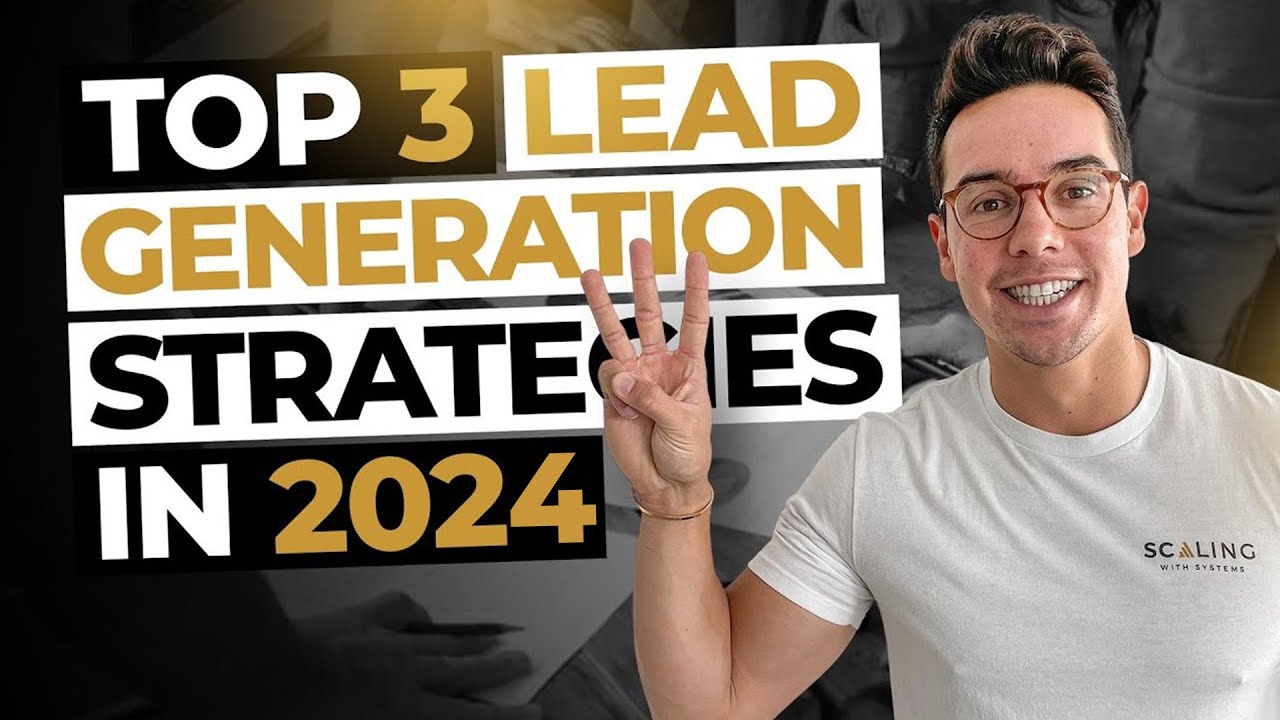In the world of business, generating high-quality leads is essential for success. When it comes to business-to-business (B2B) marketing, generating leads can be particularly challenging.
B2B leadsare potential customers or clients that are in the same industry as your business, and they are often businesses of different sizes and in different geographic locations. In this article, we will explore what B2B leads are, how togenerate them, and how to qualify them to ensure they are a good fit for your business.
What Are B2B Leads?
B2B leads are potential customers or clients that are businesses operating in the same industry as your business. B2B (business-to-business) lead generation is the process of identifying and attracting these potential customers and converting them into actual customers by using effective marketing and sales techniques.
B2B leads can come from a variety of sources, including online advertising, email campaigns, social media marketing, referrals, and trade shows. The ultimate goal of generating B2B leads is to build a pipeline of potential customers who are interested in your products or services and may be a good fit for your business.
Why B2B Leads Are Important?

Why B2B Lead Generation is essential for your business
B2B leads are important for several reasons, including:
- New business growth:B2B leads are a key driver of new business growth, as they represent potential customers who are interested in purchasing products or services from your business.
- Increased revenue:Generating and converting B2B leads can lead to increased revenue for your business, as each new customer represents a potential source of ongoing revenue over time.
- Improved marketing ROI:By targeting B2B leads more effectively, businesses can improve their marketing return on investment (ROI) by focusing their efforts on high-quality leads that are more likely to convert.
- Better customer targeting:By understanding the needs and preferences of their target audience, businesses can tailor their marketing and sales strategies to better target potential customers, resulting in more effective and efficient sales efforts.
- Stronger customer relationships:Generating B2B leads and converting them into customers can lead to stronger customer relationships over time, as businesses can continue to provide value and support to their customers long after the initial sale.
In short, B2B leads are essential for the growth and success of businesses, as they represent a valuable source of potential revenue and can help businesses better target and serve their customers over time. By focusing on generating high-quality B2B leads and converting them into loyal customers, businesses can set themselves up for long-term success and growth in their industry.
Types Of B2B Leads
There are several types of B2B leads that businesses can target to generate new sales and expand their customer base. Here are some common types of B2B leads:
- Decision-makers:These are the individuals within an organization who have the authority to make purchasing decisions. Targeting decision-makers can help businesses close deals more quickly and efficiently.
- Influencers:These are individuals who may not have decision-making power, but who can still influence the purchasing decision, such as department heads or technical experts.
- End-users:These are the individuals who will actually use the product or service being sold, such as employees within a company. Targeting end-users can help businesses demonstrate the value of their offerings and generate interest within the organization.
- Partners:These are other businesses or organizations that may be interested in partnering with your business to offer complementary products or services. Targeting partners can help businesses expand their reach and access new markets.
- Referrals:These are leads that come from existing customers or business partners who recommend your business to others. Referrals can be a valuable source of high-quality leads, as they come from individuals who have already experienced the value of your products or services.
Remember, the key to generating B2B leads is to understand your target audience and tailor your marketing and sales strategies to their specific needs and interests. By targeting the right types of leads, businesses can increase their chances of success and grow their customer base over time.
Most Popular B2B Lead Generation Strategies

Top 8 B2B Lead Generation Strategies For 2025 (B2B Marketing)
Here are some of the most popular B2B lead generationstrategies that businesses use:
- Content marketing:Content marketing involves creating and sharing valuable content, such as blog posts, whitepapers, and videos, to attract and engage your target audience. By providing useful information and answering their questions, you can establish your business as a thought leader in your industry and build trust with your potential customers.
- Email marketing:Sending targeted email campaigns to potential customers can help businesses nurture leads and move them further down the sales funnel.
- Social mediamarketing:Social media marketing involves promoting your business and content on social media platforms, such as Facebook, Twitter, and LinkedIn. By building a strong social media presence and engaging with your audience, you can attract more leads and build brand awareness.
- Search engine optimization(SEO):SEOinvolves optimizing your website and content to rank higher in search engineresults pages (SERPs) for relevant keywords. By ranking higher in search results, you can attract more traffic to your website and generate more leads.
- Paid advertising:PPC advertising involves placing adson search engine results in pages and other websites and paying a fee each time someone clicks on your ad. This can be an effective way to generate leads quickly, but it can also be costly if not managed properly.
- Referral marketing:Encouraging existing customers or business partners to refer new leads to your business can be a cost-effective and powerful way to generate high-quality leads.
- Eventsand webinars:Hosting or participating in industry events and webinars can help businesses connect with potential customers and showcase their expertise and offerings.
Remember, the most effective B2B lead generation strategies will vary depending on your target audience, industry, and business goals. By testing and refining different strategies over time, businesses can identify the most effective tactics for generating high-quality leads and growing their customer base.
How To Generate B2B Leads?

B2B Lead Generation Strategies - The Top 3 Strategies To Generate More Business To Business Leads
Generating B2B leads is an ongoing process that involves a combination of strategies and tactics. Here are some steps to help you get started with generating B2B leads:
- Identify your target audience:Define your ideal customer profile (ICP) by considering factors such as industry, company size, location, and job titles.
- Develop a lead magnet:Create a valuable piece of content, such as an ebook, whitepaper, or case study, that will attract potential customers to your business and encourage them to provide their contact information.
- Optimize your website:Make sure your website is optimized for search engines (SEO) and includes landing pages with clear calls-to-action (CTAs) that encourage visitors to provide their contact information.
- Use social media: Promote your content and engage with potential customers on social media platforms such as LinkedIn, Twitter, and Facebook.
- Attend trade shows and events:Attend relevant trade shows and events to connect with potential customers and network with other businesses in your industry.
- Utilize email marketing: Develop an email marketing campaign that targets potential customers with valuable content and personalized messages.
- Leverage paid advertising:Consider using pay-per-click (PPC) advertising on search engines and social media platforms to reach a wider audience and generate more leads.
- Nurture your leads:Once you have generated leads, it's important to nurture them by providing relevant content, personalized messages, and timely follow-up to help move them through the sales funnel.
Remember, generating B2B leads is an ongoing process, and it requires consistent effort and experimentation to find what works best for your business.
Qualifying B2B Leads
Qualifying B2B leads is an essential part of the sales process that helps businesses identify and prioritize potential customers based on their likelihood to convert. Here are some steps to help you qualify for B2B leads:
- Define your ideal customer profile:Develop a list of criteria that define your ideal customer, such as industry, company size, location, and job title.
- Determine the lead's level of interest:Gauge the lead's level of interest by analyzing their engagement with your business, such as website visits, content downloads, and email opens.
- Evaluate the lead's budget: Determine if the lead has the financial resources to purchase your product or service by asking questions about their budget or discussing pricing.
- Identify the decision-maker: Determine who the decision-maker is within the lead's organization and their level of influence in the purchasing process.
- Determine the lead's timeline: Understand the lead's timeline for making a purchase decision and determine if it aligns with your sales process.
- Assess the lead's fit with your business: Determine if the lead's needs and goals align with your business's offerings and if they are a good fit for your company.
- Prioritize leads:Use a scoring system to prioritize leads based on their level of fit and likelihood to convert, and focus your sales efforts on the highest-scoring leads.
Remember, qualifying B2B leads is an ongoing process that requires ongoing communication and evaluation to ensure that you are targeting the right customers and making the most of your sales efforts. By following these steps, you can better understand your potential customers and increase your chances of converting them into loyal customers.
People Also Ask
What Is A B2B Lead Generation?
B2B lead generation is the process of identifying, attracting, and converting potential customers or clients that are in the same industry as your business.
What Is The Difference Between B2B Leads And B2C Leads?
A: B2B leads are potential customers or clients that are in the same industry as your business, while B2Cleads are individual consumers who are interested in purchasing a product or service for personal use.
How Do You Measure The Success Of B2B Lead Generation Campaigns?
A: The success of B2B lead generation campaigns can be measured by tracking metrics such as website traffic, conversion rates, and sales revenue.
Conclusion
Generating high-quality B2B leads is an ongoing challenge for businesses of all sizes. However, by using effective lead generation strategies such as content marketing, SEO, PPC advertising, and social media marketing, businesses can attract and engage potential customers in their industry.
Once leads have been generated, it's important to qualify them based on specific criteria to ensure that the sales team is focusing on the most promising opportunities. With a strong pipeline of qualified B2B leads, businesses can grow their customer base and increase their revenue.
